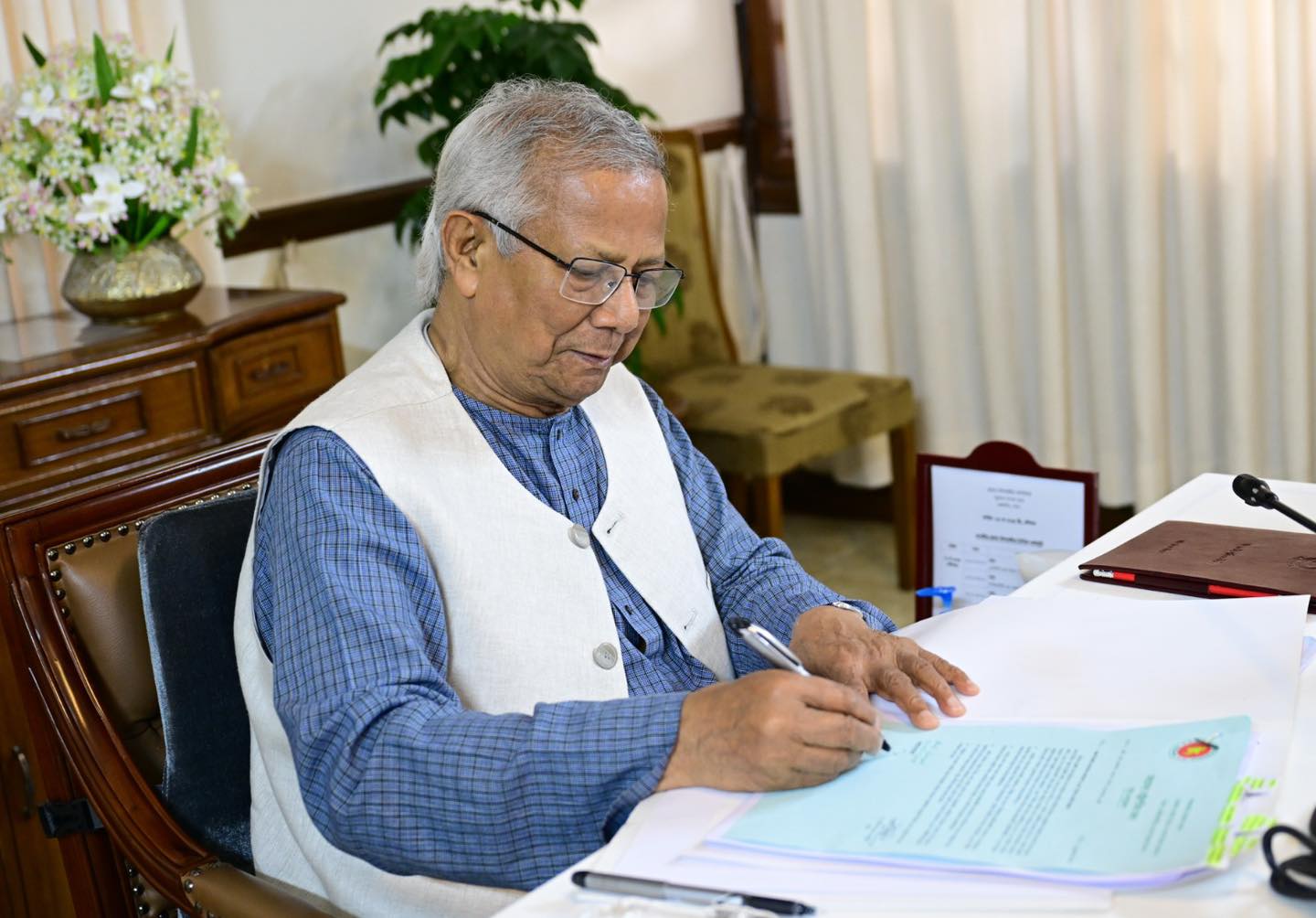Interim Chief Adviser Muhammad Yunus, a globally celebrated non-political figure, now finds himself at the centre of a turbulent political storm, as a cascade of dramatic developments unfolded over 48 hours—threatening to derail the fragile transition his government was meant to oversee.
It began with an internal address by the Army Chief on Wednesday, where he urged for national elections by December and insisted that key decisions like the regional corridor must be left to an elected government. In a clear expression of dissatisfaction, the army’s internal sentiment was laid bare: officers wanted an end to the “mob culture” that has marred political discourse in recent months.
Adding to the pressure, the military’s public relations office on Thursday released a list of 626 individuals—mostly police constables—who took shelter in cantonments after Sheikh Hasina fled from the country on August 5.
Earlier the High Court cleared the way for BNP’s Ishraque Hossain to be sworn in as Mayor of Dhaka South, sparking jubilation on one side and outrage on the other.
NCP’s north zone chief organiser Sarjis Alam questioned the ruling, writing on Facebook, “If mobs can influence High Court verdicts, what’s the point of having a High Court?” He accused the judiciary of selective justice, claiming AL-linked accused routinely receive bail, while victims of past state repression are left to rot behind bars.
In a dramatic escalation, Sarjis demanded the resignation of interim Law Adviser Asif Nazrul and criticised the lack of accountability for violence committed under the previous regime. “So much bloodshed happened at Hasina’s command, yet not a single murder case has been resolved in nine months,” he posted.
Information Adviser Mahfuz Alam, another target of BNP protests, issued a public apology later that day: “If I am to remain in government for even a single more day, I want to work with full respect and sensitivity toward all forces involved in the uprising.”
His conciliatory message stood in contrast to fellow adviser Asif Mahmud Shojib Bhuiyan, who lashed out at protesters in a Facebook post, warning that their alliance with “AL, North, and Delhi” would only backfire: “The crocodile you’re summoning will devour you yourselves.”
BNP leader Ishraque Hossain, whose supporters had staged sit-ins demanding his recognition as mayor, suspended protests for 48 hours following the court ruling, stating they would observe the government’s actions carefully. However, he reaffirmed that demands for the resignation of Mahfuz and Shojib Bhuiyan remained “non-negotiable.”
As tensions rose, National Citizen Party (NCP) southern organiser Hasnat Abdullah accused “external patrons” of trying to hijack the transition process and warned of creeping military influence reminiscent of the 1/11 crisis. While reaffirming support for elections between December and June, he warned against inviting another “military-political intervention” under the guise of reform.
But it was Chief Adviser Yunus’s possible wish to resign that sent the strongest shockwaves through country’s political circles.
NCP convener Nahid Islam, after meeting Yunus at the State Guesthouse Jamuna on Thursday night, told BBC Bangla that the Nobel laureate expressed his inability to function amid rising deadlock. “I won’t be able to work unless the political parties reach a common ground,” Nahid quoted him as saying.
According to Nahid, Yunus was deeply frustrated and feeling “held hostage” by polarised political forces. “If he doesn’t receive trust from all sides, what’s the point of staying?” Nahid remarked, though he urged Yunus not to quit, citing national stability.
The disclosure came just as BNP called for the resignation of three advisers — Mahfuz Alam, Shojib Bhuiyan, and Khalilur Rahman — for alleged bias, while NCP leaders retaliated by demanding the removal of three others they branded as BNP sympathisers.


